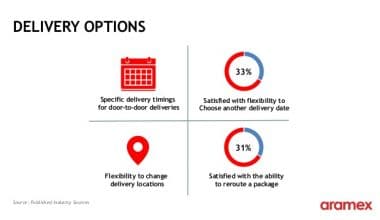Welcome to the world of Virtual Business. Virtual Business is a concept that has been gaining popularity in the world of business, and it is a concept that is here to stay. In this blog, we will explore the concept of virtual business and provide you with examples, advantages, and ideas for setting up your own virtual business.
What is a Virtual Business?
A virtual business is an organization that does not have a physical presence. It may operate over the internet, or by using telephone or other communication technologies. Virtual businesses are often set up by entrepreneurs or freelancers who want to work from home or from anywhere in the world.
The main advantage of setting up a virtual business is that it can be operated from anywhere in the world. This means that entrepreneurs or freelancers no longer have to be tied down to a physical location. They can work from anywhere, at any time, and their customers can access their services and products from any location.
In addition, virtual businesses have lower overhead costs than traditional businesses. This means that entrepreneurs and freelancers can save money on rent and utilities, and they can focus on providing excellent customer service and products.
The concept of virtual business has been around for several decades, but it has become increasingly popular in recent years. This is due to the growth of the internet and other communication technologies.
Advantages of a Virtual Business
There are many advantages to setting up a virtual business.
- Virtual businesses have lower overhead costs than traditional businesses. This means that entrepreneurs can save money on rent, utilities, and other expenses associated with a physical business.
- They can reach a global audience. This means that entrepreneurs and freelancers no longer have to limit their services and products to a local market. They can reach customers from all over the world, and this can help them to increase their revenue.
- Virtual businesses allow entrepreneurs to work from anywhere in the world. This is a great advantage for entrepreneurs who want to work from home or travel the world. It also allows them to work on their own schedule, which can be great for entrepreneurs who want to work on their own terms.
- Virtual businesses can be easily scaled. This means that entrepreneurs and freelancers can start small and then expand their businesses as they gain more customers. This can be great for entrepreneurs who are just starting out and want to test the market before investing a lot of money into the business.
Examples of Virtual Businesses
There are many examples of virtual businesses. Some of the most popular examples include web design, graphic design, freelance writing, virtual assistant services, software development, and e-commerce. These are just a few of the many types of virtual businesses that are available.
In addition, there are also virtual business services such as bookkeeping, marketing, and customer service. These types of services are great for entrepreneurs who want to outsource certain tasks to a professional. These services can help entrepreneurs save time and money while still providing excellent customer service.
Finally, there are also virtual business models such as subscription services, online courses, and online marketplaces. These models are great for entrepreneurs who want to provide their customers with a subscription-based service or an online course. They can also set up an online marketplace to sell their products and services.
Setting Up a Virtual Business
Setting up a virtual business can be a challenging task. However, it is also a rewarding one. There are several steps that entrepreneurs need to take in order to set up a successful virtual business.
The first step is to decide on the type of business that you want to set up. You need to decide on the services or products that you want to provide and the type of customer base that you want to target.
Once you have decided on the type of business that you want to set up, you need to create a website. This is the first thing that customers will see when they visit your business. You need to ensure that your website is professional, easy to navigate, and informative.
Once your website is up and running, you need to set up a payment system. This will allow customers to pay for your services and products. You also need to set up a customer service system so that customers can contact you if they have any questions or concerns.
Finally, you need to set up a marketing strategy. This will help you to reach your target audience and promote your business. You can use a variety of strategies such as SEO, content marketing, social media marketing, and email marketing.
How to Get a Virtual Business Address
One of the most important aspects of setting up a virtual business is getting a virtual business address. This address is used for legal and administrative purposes, and it should be professional and secure.
Step #1. Register your business with the local government
The first step is to register your business with the local government. This will give you an official business address, which can be used for all of your legal and administrative purposes.
Step #2. Get a virtual business address.
This address should be professional and secure, and it should be easy for customers to find. You can get a virtual business address from a variety of online providers, and these providers will often provide additional features such as voicemail, fax, and email services.
Step #3. Create a website for your virtual business.
This website should include information about your business and your services, and it should be easy for customers to navigate. It should also include a contact page that allows customers to contact you directly.
Step #4. Get up a virtual business phone number.
This phone number should be professional and secure, and it should be easy for customers to contact you. You can get a virtual business phone number from a variety of online providers, and these providers will often provide additional features such as voicemail, fax, and email services.
Virtual Business Ideas
If you are looking for ideas for a virtual business, there are countless possibilities. Here are a few ideas to get you started:
- Web Design: If you have experience in web design, you can start a virtual business offering web design services to clients.
- Online Courses: If you have expertise in a certain subject, you can create online courses to teach others.
- Freelance Writing: If you have writing skills, you can offer freelance writing services to clients.
- Virtual Assistant: If you have administrative or organizational skills, you can offer virtual assistant services to clients.
- Social Media Management: If you have experience with social media, you can offer social media management services to clients.
- SEO Services: If you have knowledge of SEO, you can offer SEO services to clients.
- Online Store: If you want to sell products, you can set up an online store to do so.
- Consulting Services: If you have expertise in a certain field, you can offer consulting services to clients.
- Affiliate Marketing: If you have a blog or website, you can join affiliate programs and earn a commission from sales.
- Virtual Events: If you have experience with event planning, you can offer virtual event planning services to clients.
Creating a Virtual Business Plan
Creating a business plan is an important step in setting up a virtual business. A business plan will help entrepreneurs and freelancers to stay focused and organized, and it will also help to ensure that the business is successful.
Step #1.
The first step is to define the purpose of the business. This should include the services or products that will be offered, the target audience, and the goals of the business.
Step #2.
The second step is to create a financial plan. This should include a budget for all of the expenses associated with running the business, such as web hosting, software, and advertising. It should also include a plan for how much money should be saved each month in order to pay taxes and other expenses.
Step #3.
The third step is to create a marketing plan. This should include a plan for how to reach the target audience, such as through SEO, content marketing, social media marketing, and email marketing.
Step #4.
The fourth step is to create an operational plan. This should include a plan for how to manage the day-to-day activities of the business, such as customer service, accounting, and bookkeeping.
Step #5.
Finally, entrepreneurs and freelancers should create a timeline for their businesses. This timeline should include the key milestones that need to be achieved in order for the business to be successful.
How to Market Your Virtual Business
Marketing is an important part of any business, and this is especially true for virtual businesses. Marketing will help entrepreneurs and freelancers to reach their target audience and promote their services and products. Here are a few tips for marketing your virtual business:
- Create a Website: A website is a great way to promote your virtual business. It should include information about your services and products, and it should also be easy to navigate.
- Use Social Media: Social media is a great way to reach a large audience. You can use social media to post updates about your business, promote your services and products, and engage with customers.
- Send Out Newsletters: Newsletters are a great way to keep customers informed about your business. You can use newsletters to promote new services and products, share updates and blog posts, and offer discounts and promotions.
- Create Content: Content is a great way to promote your business. You can create blog posts, videos, and other content that will help to attract customers to your business.
- Use SEO: SEO is a great way to improve the visibility of your website. You can use SEO to optimize your website and content for search engines, and this will help to increase your website’s ranking in the search results.
- Advertise: Advertising is a great way to reach a larger audience. You can use online advertising platforms, such as Google Ads and Facebook Ads, to promote your business.
- Network: Networking is a great way to promote your business. You can attend virtual networking events, join online communities, and reach out to influencers and other professionals in your industry.
Virtual Business Personal Finance
Personal finance is an important aspect of any business, and it is especially important for virtual businesses. Virtual businesses often have lower overhead costs than traditional businesses, and this means that entrepreneurs and freelancers must be mindful of their personal finances in order to ensure the success of their businesses.
The first step is to create a budget. This budget should include all of the expenses associated with running a virtual business, such as web hosting, software, and advertising. It should also include a plan for how much money should be saved in order to pay taxes and other expenses.
The second step is to create a plan for how much money should be saved each month. This plan should include both short-term and long-term goals, and it should be realistic and achievable. It should also include an emergency fund for unexpected expenses.
The third step is to set up a system for tracking expenses. This system should include both income and expenses, and it should be easy to use and update. It should also be secure and accessible from anywhere in the world.
Finally, entrepreneurs and freelancers need to be mindful of their own personal finances. This includes setting aside money for retirement, investing in stocks and bonds, and saving for a rainy day.
Virtual Business Courses and Services
If you are looking for more information about setting up and running a virtual business, there are a variety of courses and services available. These courses and services can provide entrepreneurs and freelancers with the knowledge and resources they need to be successful.
- Virtual Business Coaching: Virtual business coaches can provide entrepreneurs and freelancers with the guidance and support they need to succeed. Coaches can provide personalized advice, strategies, and resources for setting up and running a virtual business.
- Courses: There are a variety of courses available for entrepreneurs and freelancers who want to learn more about setting up and running a virtual business. These courses provide comprehensive information about setting up a virtual business, marketing, customer service, and more.
- Software: There are also a variety of software programs available that can help entrepreneurs and freelancers to manage their virtual business. These software programs can be used to track expenses, manage customer relationships, and more.
- Services: There are also a variety of services available that can help entrepreneurs and freelancers to run their virtual businesses. These services can provide entrepreneurs and freelancers with assistance in marketing, customer service, and other aspects of running a business.
Conclusion
Virtual Business is a great concept for entrepreneurs and freelancers who want to work from anywhere in the world. It can provide entrepreneurs with the flexibility to work on their own terms, and it can also provide them with the opportunity to reach a global audience.
There are many advantages to setting up a virtual business, such as lower overhead costs, global reach, and scalability. There are also a variety of virtual business ideas, such as web design, online courses, and virtual assistant services.
Related Articles
- BEST BUSINESSES TO START IN 2023 (Updated)
- Virtual Administrative Assistant: Jobs, Services, Companies, Requirements & All You Need
- VIRTUAL ASSISTANT SERVICES: Best Virtual Assistance Services
- Virtual Teams: Types, Benefits, Challenges & Management
- How to Buy, Create & Invest In Virtual Real Estate In Metaverse 2023






